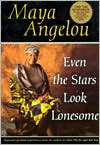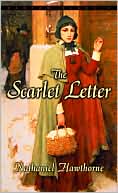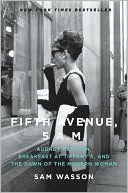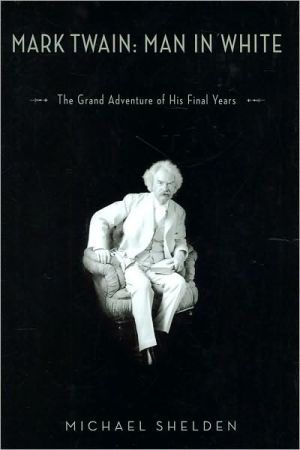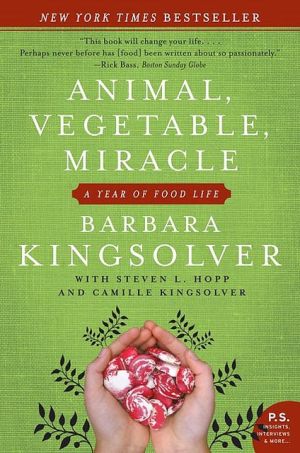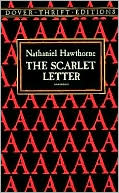Even the Stars Look Lonesome
I have written of the black American experience, which I know intimately. I am always talking about the human condition in general and about society in particular. What it is like to be human, and American, what makes us weep, what makes us fall and stumble and somehow rise and go on.\ The compelling wisdom and deeply felt perceptions of Maya Angelou have been cherished by millions of readers. Now, in a continuation of her bestseller Wouldn't Take Nothing for My Journey Now, she shares many...
Search in google:
I have written of the black American experience, which I know intimately. I am always talking about the human condition in general and about society in particular. What it is like to be human, and American, what makes us weep, what makes us fall and stumble and somehow rise and go on.The compelling wisdom and deeply felt perceptions of Maya Angelou have been cherished by millions of readers. Now, in a continuation of her bestseller Wouldn't Take Nothing for My Journey Now, she shares many of her most treasured personal experiences, reflecting on the ideas and inspirations that have touched her heart. Even the Stars Look Lonesome is a profound series of essays that explores aspects of life both big and small, with Maya Angelou serving as the unique, spellbinding guide to a powerful spiritual journey.New York Times Book ReviewMaya Angelou writes like a song, and like the truth.
A House Can Hurt, a Home Can Heal\ My last marriage was made in heaven. The musical accompaniment was provided by Gabriel, and angels were so happy that ten thousand of them danced on the head of a pin. It was the marriage to end all my marriages. My husband had dropped out of architecture school and become a builder. In fact, in Britain, where he had lived, he was called a master builder. We married in Los Angeles, where he bought and rebuilt old houses, then sold them at handsome profits. We then moved to Sonoma County, where he found more old houses to refurbish. He restored a genteel, polished look to old Victorians and modernized 1930s bungalows. After several years of rapturous married life we moved to the Pacific Palisades, into a futuristic condo that thrust its living room out over a California canyon with a daring and an insouciance usually to be found only in a practiced drunk pretending sobriety. There in that very expensive and posh settlement the foundation of my marriage began to collapse.\ With all heart-sore lovers I say, "I don't know what went wrong." But I suspect it was the house. The living room was two stories high, and I put my large three-by-five-foot paintings on the walls, and upon those vast reaches they diminished and began to look little better than enlarged color posters. I laid my Indian and Pakistani rugs on the floor over the beige wall-to-wall carpeting and they drowned in the vastness of the living room, appearing little more than colorful table mats on a large boardroom table.\ Everything was built in—standard oven, microwave oven, grill, garbage disposal, compactor. There was nothing for my husband to do.\ Before, when our marriage had shown weakness—as all marriages do, I suppose—I would argue with my husband on his procrastination in taking out the garbage or his failure to separate the cans from the glass bottles, or his refusal to brush the Weber clean and empty the ashes. But, alas, since the house did everything itself, I couldn't blame him for his inconsequential failures, and was forced to face up to our real problems.\ Floundering or not, we still had the ability to talk to each other. I asked what he thought was the matter, and he said, "It's this damned house. We are simple people and it is too damned pretentious." (I did question if we were truly simple people. I was the first black female writer/producer at Twentieth Century-Fox, a member of the board of trustees of the American Film Institute, and a lecturer at universities around the world—from Yale to the university in Milan, Italy. He was a builder from London, a graduate of the London School of Economics, the first near-nude centerfold for Cosmopolitan magazine, and formerly the husband of Germaine Greer. Our credentials, good and bad, hardly added up to our being simple people.)\ We agreed that the house was separating us. He thought it was time to move back to northern California, where the grass was greener and the air purer, and we could live simpler lives. I would write poetry and he would build ordinary houses.\ He went on a quest to the Bay Area and found an Art Deco house in the hills of Oakland with a magnificent view of the Golden Gate Bridge. His happiness was contagious. Our marriage was back on track. We were a rather eccentric, loving, unusual couple determined to live life with flair and laughter. We bought the house on Castle Drive from a couple who had married a year before and had been busy bringing the house back to its original classical three pastel colors. I admit, it was a little disconcerting to find that the couple had divorced before they even moved into the house. But I decided that that was their affair and was not necessarily a bad omen for our new house.\ My husband and I moved in. The beautiful parquet floors welcomed my Oriental rugs. In hanging my paintings I had to adjust to some of the round corners, but I adjusted. My oversized sofas were primed to offer comfort to those who wanted to sit and look out over the garden and at the bay. There was a room that was a bar, and its circular windows opened into the kitchen, where there was no compactor, no garbage disposal, one oven and a gas range. The piano sat in one corner of the spacious living room, and we set up handsome card tables in the bar so that we could entertain ourselves and our guests at bid whist and other parlor games. I thought, Now, this is the way to live.\ Within a month I realized the house hated me. It was no consolation that it hated my husband as well. I was known as a good cook, and sometimes there were even flashes of brilliance in my culinary efforts. But in that house on Castle Drive, if I made bread or cakes they would inevitably fall into soggy, resentful masses. When I fried chicken, the skin and batter would be crisp and at the bone there would be blood as red as cherries. The king-sized bed we had brought from Berkeley to Los Angeles and back to Oakland fell in the middle of the night without any prompting of activity by the occupants. My drapes, hung by professionals, came off the runners. The doors began not to fit the frame, and my piano would not stay in tune. The house hated us.\ My Airedale, Toots, preferred to stay out in the yard in the cold rather than enter the house. We had the bother and the expense of building a doghouse, although the dog had been intended to be house company for me. Within six months my husband and I were hardly speaking to each other, and within a year of moving into that formal architectural edifice we agreed to call a halt to the struggle to save our marriage.\ We owned two large houses. I went away for three weeks, asking that when I returned he would be moved into one of them taking whatever he wanted of the furniture, paintings, linens and other things we had accumulated together.\ I returned to the house on a dark evening and was reminded of something I had said to an interviewer years earlier. I had been asked what I would like as my last meal if I was going to die. I had replied, "I don't want to think that far ahead, but if I were going to Mars tomorrow I would like to have hot chicken, a chilled bottle of white wine and a loaf of good bread." When I went into the darkened house, I was greeted by the aroma of roast chicken. There was a note on the refrigerator that read, "There is a hot chicken in the oven, a cold bottle of wine in the fridge and a loaf of good bread on the cutting board. Thank you for the good times." Now, that's the kind of man I wanted to marry and did marry. And if it wasn't for those two damned bad houses, I would still be married to him.\ My husband announced that he was going to stay in the Bay Area. I decided that since we had jointly found the best restaurants, the best friends, the best bars, the best parks, it was inevitable that if I stayed there that I would walk into a restaurant one day or into a bar one night and he would be there with my new replacement, or he would walk into a restaurant or a bar one evening and I would be sitting there with his replacement. Our relationship had been too friendly to allow us to risk that sort of embarrassment. So I gave my ex-husband the Bay Area—I gave him San Francisco and Oakland and the hills and the bays and the bridges, and all that beauty. And I moved to North Carolina. I thought I'd find a small, neat little bungalow and I'd step into it and pull its beautiful walls around my shoulders. I thought that was very poetic, and that way I would just sort of muddle through the rest of my life.\ However, once I got to North Carolina, I realized that my gigantic old-fashioned furniture would not be accommodated in a bungalow. I also considered that if I moved from a ten-room house in the hills of Oakland to anything smaller, I would be implying, at least to myself, that my circumstances had been reduced. So I started looking for a large house, and I found one.\ When I walked into it, the woman who was selling it had the good sense and the wit to be baking gingersnap cookies and fresh bread. The place reeked of home. The aroma reached out to the landing, put its arms around me and walked me through the front door.\ I offered a large sum of money in good faith and explained that I wanted to lease the house for a year, and if I didn't buy the house after that time I would forfeit the good-faith money. The owners said I didn't need to do that. They had read my work and said they wanted me to have the house, and offered me terms that I found impossible to refuse.\ I bought the house, and as I refurbished it, it also molded me. I added a bedroom for my grandson, who had been missing for four years. He was returned as the room was completed. A man whom I had adored from a distance declared his undying love for me.\ When I took the house it had ten rooms, and I have added on more. At present it has eighteen rooms. My builder asked me if I was thinking of reaching the next street down from my house. This is no longer my house, it is my home. And because it is my home, I have not only found myself healed of the pain of a broken love affair, but discovered that when something I have written does not turn out as I had hoped, I am not hurt so badly. I find that my physical ailments, which are a part of growing older, do not depress me so deeply. I find that I am quicker to laugh and much quicker to forgive. I am much happier at receiving small gifts and more delighted to be a donor of large gifts. And all of that because I am settled in my home.\ My life and good fortune carry me around the world. However, when I am on a plane and the pilot announces, "Ladies and gentlemen, we have begun our descent into North Carolina," my burdens lift, my heart is at ease and a smile finds its way all the way across my face. I know that soon I will be in a car that will stop on a quiet street in Winston-Salem, and I will step out and be home again.\
A House Can Hurt, a Home Can Heal1Africa11Aging19Godfrey Cambridge and Fame25A Song to Sensuality33They Came to Stay39Mother and Freedom45Loving Learning51Poetic Passage57Art in Africa63Vacationing71Age and Sexuality77Rural Museums - Southern Romance87I Dare to Hope97Poor Poverty105Danger in Denial109The Rage Against Violence113Art for the Sake of the Soul119Those Who Really Know Teach135Even the Stars Look Lonesome Sometimes141
\ From the Publisher“Maya Angelou writes like a song, and like the truth.”\ — The New York Times Book Review\ “Everything about Maya Angelou is transcendental. She has something to tell you now. Listen.”\ — Robert Fulghum, The Washington Post Book World\ “If you don’t know [Maya Angelou] yet, now is as good a time as any to jump in and partake of her bounteous wisdom.”\ — Los Angeles Times\ “Angelou’s voice is spellbinding, bubbling with rhythm, vivid with lessons.”\ — The Miami Herald\ “Angelou is a force of nature.”\ — Chicago Sun-Times\ “A sort of wit and wisdom of Angelou, culled from a lifetime of adversity and overcoming.”\ — The Denver Post\ \ \ \ \ \ Peter Kurthwhen Maya Angelou was a young woman -- "in the crisp days of my youth," she says -- she carried with her a secret conviction that she wouldn't live past the age of 28. Raped by her mother's boyfriend at 8 and a mother herself since she graduated from high school, she supported herself and her son, Guy, through a series of careers and buoyed by an implacable ambition to escape what might have been a half-lived, ground-down life of poverty and despair. "For it is hateful to be young, bright, ambitious and poor," Angelou observes. "The added insult is to be aware of one's poverty." In Even the Stars Look Lonesome, her new collection of reflective autobiographical essays, Angelou gives no further explanation for her "profound belief" that she would die young.\ "I was thirty-six before I realized that I had lived years beyond my deadline and needed to revise my thinking about an early death," she recalls. "With that realization life waxed sweeter. Old acquaintances became friendships, and new clever acquaintances showed themselves more interesting. Old loves burdened with memories of disappointments and betrayals packed up and left town, leaving no forwarding address, and new loves came calling." Now 69, Angelou is the nearest thing America has to a sacred institution, a high priestess of culture and love in the tradition of such distaff luminaries (all of them, hitherto, white) as Isadora Duncan and Pearl S. Buck, with a bit of Eleanor Roosevelt and Aimée Semple MacPherson thrown into the mix.\ "She was born poor and powerless in a land where/power is money and money is adored," the poet Angelou writes in tribute to another astonishing black woman of our time, Oprah Winfrey. "Born black in a land where might is white/and white is adored./Born female in a land where decisions are masculine/and masculinity controls." Angelou's lifelong effort to escape and expose the "national, racial and historical hallucinations" that have burdened black women in America and replace them with a shining exemplar of power, achievement and generosity of spirit is as miraculous as she says it is, even if one suspects that in "real life" Angelou must be a little hard to take.\ "I would have my ears filled with the world's music," she writes, "the grunts of hewers of wood, the cackle of old folks sitting in the last sunlight and the whir of busy bees in the early morning ... All sounds of life and living, death and dying are welcome to my ears." At times Angelou seems more like a blast from Olympus than a woman of flesh and blood. Reading these essays, I found myself longing somewhat guiltily for evidence of smallness on her part, of pettiness, even -- some sign that even an icon as monumental as she is might occasionally allow herself an irritated moment, a lapse into cynicism, or humor that wasn't so resolutely seasoned and wise.\ On the other hand, smallness isn't what Maya Angelou stands for. Ordinary is not what she does. In "They Came to Stay," her meditation on "the black woman's stamina," Angelou salutes "the educators, athletes, dancers, judges, janitors, politicians, artists, actors, writers, singers, poets and social activists" among her sisters, all of which (with the possible exception of janitor and judge) she has been herself. Her essays make beautifully easy reading, warm, inspiring and reassuring to a fault. Only a cynic, a smaller mind than Angelou's, could fail to welcome the gifts she offers. -- Salon\ \ \ \ New York Times Book ReviewMaya Angelou writes like a song, and like the truth.\ \ \ \ \ Publishers WeeklyAs in Wouldn't Take Nothing for My Journey Now, famed poet and author Angelou (I Know Why the Caged Bird Sings) casts a keen eye inward and bares her soul in a slim volume of personal essays. This collection is narrower in scope than Angelou's earlier book and the sense of racial pride is stronger, more compelling. But all of her opinions are deeply rooted and most are conveyed with a combination of humility, personable intelligence and wit. Like a modern-day Kahlil Gibran, Angelou offers insights on a wide range of topics-Africa, aging, self-reflection, independence and the importance of understanding both the historical truth of the African American experience and the art that truth inspired. Women are a recurrent topic, and in "A Song to Sensuality," she writes of the misconceptions the young (her younger self included) have of aging. "They Came to Stay" is a particularly inspirational piece paying homage to black women: "Precious jewels all." Even Oprah Winfrey (to whom the previous collection was dedicated) serves as subject matter and is likened to "the desperate traveler who teaches us the most profound lesson and affords us the most exquisite thrills." In her final essay, Angelou uses the story of the prodigal son to remind readers of the value of solitude: "In the silence we listen to ourselves. Then we ask questions of ourselves. We describe ourselves to ourselves, and in the quietude we may even hear the voice of God."\ \ \ \ \ Weekly Editors EntertainmentAuthor balances lofty language with keenly self-aware humor in this brief collection of personal sketches.\ \ \ \ \ Kirkus ReviewsThese compelling pieces span the full range of Angelou's concerns. In "Poetic Passage," she speaks with admiration of the "desperate traveler who teaches us the most profound lesson and affords us the most exquisite thrills. She touches us with her boldness and vulnerability, for her sole preparation is the fierce determination to leave wherever she is." No words could better describe the impact of Angelou's writing at its best. Whether she is exploring the intimacies of marriage or the passages of sensuality throughout a woman's lifetime, raging against racism and violence or celebrating the richness of Africa and its tribal art and culture, she is herself ever the "eager traveler." Angelou's senses never take a vacation from her intellect; together they take her to a wide variety of places: her home in North Carolina, a beach in Mexico, a nightclub in New York. They explore, among other things, the complementary experiences of performing in an opera while traveling in Morocco and of standing alone on a stage and singing the spirituals she first learned as a young girl. In one piece, Angelou recalls poems learned in her youth, chants that brightened the dark skies of the Depression in the rural South. "Art encourages us," she says "to stand erect and stretch upward toward the higher ground."\ Angelou is always rewarded by what life gives back in her travels, and in sharing with us such perceptions chanced upon in rich solitude, she startles with her frank, fresh ability to relate in precise prose whatever she learns.\ \ \
